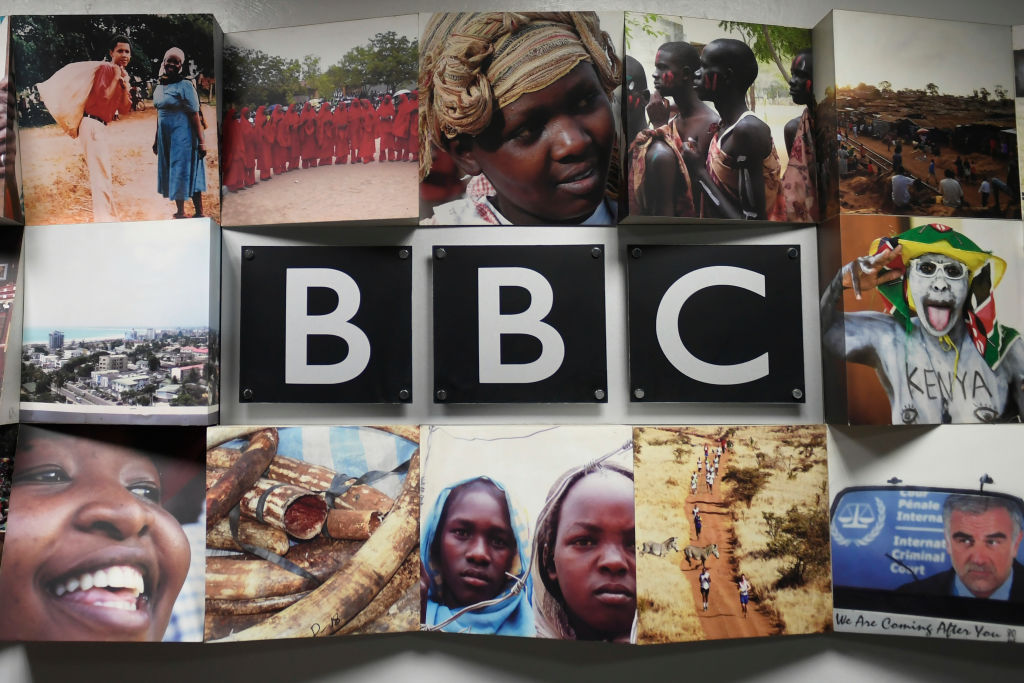Another day, another breast-beating confession from a BBC news-wallah about how the Corporation has sinned against diversity. This time it was ‘head of newsgathering’ Jonathan Munro lamenting the fact that most of the editors who labour under him are highly-educated, middle-class white men: ‘I don’t think anyone can think that is right or justifiable,’ he declaimed piously in a Media Masters podcast. He added:
‘We don’t want all our editorial meetings to be dominated by what white people think. We don’t want any single group in society to dominate our editorial thinking, because we are not being diverse in our thought process.’
This raises an interesting point; does Munro think that the current priorities of BBC news bulletins reflect what ‘white people think?’ If so, I have news for him.
BBC News, as presently constituted, faithfully reflects the views not of ‘white people’ in the round but of a tiny subsection of the white population; his editors are, generally speaking, highly educated. They are also often painfully politically correct and liberal left in outlook. They seem to have swallowed whole the notion that they must conscientiously check their ‘white privilege’ at all times. That is surely why the BBC so assiduously tracks the woke news agenda in its coverage.
Take, for instance, the BBC’s obeisance to Black Lives Matter. This revolutionary network sprang from the undoubted injustices sometimes meted out to black Americans by policemen. But the tradition of British policing, and our history of relations between races, is so fundamentally different to the American experience that the concerns of BLM should have remained an interesting but distant concern. Instead those concerns were imported wholesale into the British context, because BBC editors decided that they should be. My question to Mr Munro is this: was such coverage a result of his editorial meetings being dominated by ‘what white people think?’
The answer to that question is oddly contradictory and highlights the growing chasm between the BBC and the rest of us. The answer is no, in the sense that ordinary people in Britain (of all colours and backgrounds) are likely to be highly sceptical of the claims and aims of BLM; its pledge to ‘dismantle capitalism’, for instance. But yes in the sense that amplifying and championing the BLM cause was an instinctive response which likely mirrors the outlook and views of the cadre of its senior (and often, as Munro says, white) editors.
The BBC news operation is a huge, many-tentacled beast; aside from the main bulletins that people instinctively think of – the Ten O’Clock news on BBC1 or the Six O’Clock News on Radio 4, for example – there are literally hundreds of bulletins every day broadcast from all the Corporation’s many outlets. And what makes the BBC such a potent influence on the country is that these bulletins rely on a diet of national news originated in New Broadcasting House. That’s why they all conform to the same news agenda.
In addition to his lament at the lack of racial diversity in the senior ranks, Munro also deprecated the fact that working-class people were under-represented. He cited the Grenfell Tower fire, and said that the BBC was not sufficiently aware of the issues facing people in council housing because too few of its people come from that background.
This is feeble-minded nonsense. The BBC has covered this story exhaustively, and it is difficult to see how the class background of BBC people is relevant; you don’t need to have lived in a tower block to appreciate the problems of those who do, just as you do not need to have been a nurse to appreciate the problems of the NHS during the pandemic. A good journalist should be able to report accurately and with empathy on all kinds of people in all types of situations.
It is clearly right that the BBC should strive to ensure that black people, or working-class people, are treated fairly when they apply for a job; it is important that not everyone who works for the broadcaster comes from the same background; we all get that. But Munro’s approach is diversity by numbers.
It is a shallow approach that aims to achieve a workforce that looks like Britain; what it desperately needs is a workforce that thinks like Britain. And that means recruitment policies aimed at increasing political diversity, a quality which is not mentioned enough by people like Munro.
BBC newsrooms are a political monoculture which can be intimidating for those who do not share the Corporation’s priorities. If the BBC is successful in getting more BAME people into senior editorial jobs that will change nothing if these same individuals share the political agenda of the current lot.
What might effect real change is if the BBC recruited, say, some socially conservative editors. Now that really would be revolutionary – but it is not, I think, on the Corporation’s ‘to do’ list. That, as always, is a quota-driven, skin-deep vision of diversity.






Comments